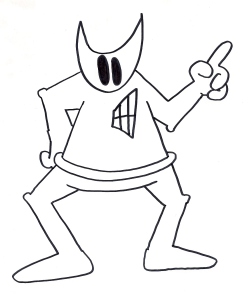 Every so often, I start thinking about Odd Man Out and how romantic the film is.
Every so often, I start thinking about Odd Man Out and how romantic the film is.
Yes, I’m talking about Odd Man Out, Carol Reed’s elegiac 1947 masterpiece about the “Troubles” in Northern Ireland. The one where James Mason’s dying gunman staggers from alley to alley after killing a man in a robbery. The one where Robert Newton plays a crazed painter aching to create a portrait of the doomed fellow. The one where Robert Krasker’s cinematography captures all of the shadows and snow cloaking Belfast’s forgotten corners.
That doesn’t sound romantic, you say. But it is, it truly is.
When you get to the end and watch Kathleen, the woman who loves Mason’s Johnny McQueen, make the decision to go with him on his predetermined journey, you might agree with me. Because they’re both incredibly flawed, often unlikable, even criminals–yet they overlook their faults for love.
By the way, I’m not advocating this behavior at all. As Sibella says in Kind Hearts and Coronets: “Not at all.” Johnny and Kathleen are just characters and not to be emulated–especially in light of the fact that they use violence to achieve their ends.
But their actions oddly remind me of another pair of I-don’t-care-about-anyone-else lovers, Heathcliff and Catherine in the towering novel Wuthering Heights. The idea that the connection between two people can be so strong that everyone else is immaterial is, to my mind, one of the most romantic and completely untenable notions around. That it exists, presumably, just in art is a blessing; anyone who apes Heathcliff in real life would be the most insufferable person around. Still, it informs the screen, with Johnny and Kathleen providing perfect examples of all-forgiving, all-consuming adoration.
And it makes a spellbinding story. Emily Brontë, I’m sure, knew that well.
I think about Odd Man Out most often when I’m mulling life beyond our own–not that on other planets, but on ours, in a movie that superficially is about political divisions yet really concerns people. It’s about humans’ insularity, how selfish we can be … and how personal our goals are. Maybe that’s what I like most about the film, that it shows us in all our disarray, in characters who are lost everywhere they go except together.
It doesn’t mean they’re right. It does, however, mean romance.